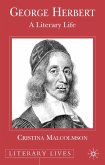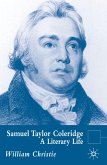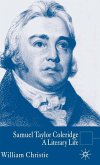Instead of an isolated genius living in retreat from the world, George Herbert appears in this book as a man writing public verse, active within an important social circle and committed to nationalistic Protestantism.
This volume replaces the traditional image of George Herbert as meditative recluse with a portrait of the poet as engaged throughout his life with the religion, politics and society of his time. Instead of an isolated genius living in retreat from the world, Herbert appears as a man writing public verse, active within an important social circle, and committed to nationalistic Protestantism. The book attends to the poetic brilliance of his verse as well as the institutions and contexts that influenced him: the upper class coterie, Cambridge University, and the Church of England.
This volume replaces the traditional image of George Herbert as meditative recluse with a portrait of the poet as engaged throughout his life with the religion, politics and society of his time. Instead of an isolated genius living in retreat from the world, Herbert appears as a man writing public verse, active within an important social circle, and committed to nationalistic Protestantism. The book attends to the poetic brilliance of his verse as well as the institutions and contexts that influenced him: the upper class coterie, Cambridge University, and the Church of England.









